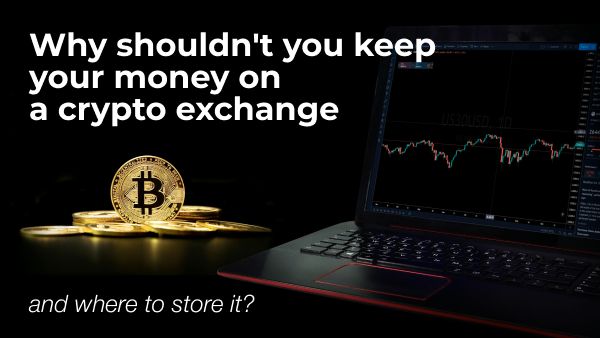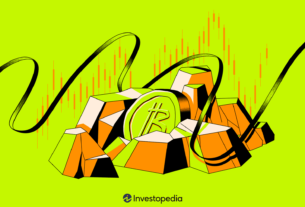- Eyal Avramovich Discusses Innovation, Cryptocurrency, and His Vision for the Future
- Blockchain Revolution: How Cryptocurrency is Transforming Global Logistics
- Watch These Coinbase Price Levels as Stock Rallies to Start 2025
- Apple Users Warned—Bitcoin $100,000 Surge Fuels Password Theft
- China’s new forex rules require banks to tighten scrutiny on cryptocurrency trades
Learning from your mistakes is valuable, especially when it comes to crypto payment gateways without KYC and the broader crypto market, which, as known, doesn’t forgive errors. We’ve gathered some non-obvious facts about cryptocurrency exchanges, payment platforms, and trading systems that led to the loss of thousands of bitcoins and millions of dollars. These mistakes definitely offer something to learn from.
Bạn đang xem: Lessons From Bankruptcies And Hacks You Can’t Ignore
Disclaimer: Dangerous, do not try at home.
Your Money is Not Really Yours
Do you have a seed phrase for your exchange account? No? Then you don’t actually own your assets. What can happen? Let’s look at the story of the Canadian cryptocurrency exchange, QuadrigaCX.
By December 2018, the exchange had 363,000 registered users, 115,000 of whom held assets worth a total of $190 million. On December 9, 2018, the founder of the platform, Gerald Cotten, suddenly and unexpectedly passed away from complications related to Crohn’s disease in an Indian hospital.
The tragic irony is that Gerald took with him the access to most of QuadrigaCX’s cold wallets. The company declared bankruptcy, and all customer accounts were frozen. People lost access to their funds forever.
How Could This Have Been Avoided?
For long-term storage, use hot or cold wallets to which you have the seed phrase. Even if the wallet stops working, you can recover access using the mnemonic phrase.
Exchange Servers Can Be Seized
Xem thêm : North Korean Hackers Pull Off $308M Bitcoin Heist from Crypto Firm DMM Bitcoin
A cryptocurrency exchange client has no ability to install software on their own server. If the servers are seized by third parties, all information about cryptocurrency transfers and receipts will fall into their hands.
This is exactly what happened in Germany in September 2024. Authorities seized equipment that was being used by 47 cryptocurrency exchanges, which claimed to be anonymous and untouchable. Naturally, all client data — IP addresses, account details, and transaction histories — ended up in the hands of law enforcement. When users attempted to access their usual exchange platforms, they were met with a threatening message stating that their last transaction had been recorded and they should expect an offline meeting with the police soon.
How to Maintain Privacy in Blockchain Transactions?
To truly control your cryptocurrency and sensitive information, use non-custodial solutions where the software is installed on your server. This ensures that no one has access to your data.
The Risk of AML Asset Freezes
Do you know how “clean” the cryptocurrency in your wallet is? If you’ve never checked your coins for risk levels, any transaction could be your last. If an AML (Anti-Money Laundering) check flags a high-risk level, the exchange has the right to freeze your account and demand proof of the funds’ legality. Dealing with customer support can take weeks, and accounts are not always recoverable.
How to Protect Your Assets from AML Freezes?
Check the risk level of your cryptocurrency using specialized services like Crystal Blockchain. Request the address from which you are to receive cryptocurrency and verify it. If the check reveals high-risk assets, ask the sender to transfer other coins.
Don’t want to use a third-party service? Some wallets, like BitHide, allow for automatic risk assessment of all received cryptocurrencies directly within the wallet.
The Threat of Hacks by Fraudsters
Exchange balances are often worth billions of dollars, making them a prime target for hackers who work around the clock to find vulnerabilities. Let’s revisit the infamous story of Mt. Gox, one of the largest exchanges of its time.
In 2014, Mt. Gox handled 70% of all Bitcoin transactions globally. During a severe cyberattack, hackers managed to steal 850,000 bitcoins. The company collapsed shortly afterward, declaring bankruptcy. What happened to users’ funds? Regulators intervened, and the exchange returned 200,000 bitcoins, but most users permanently lost their assets.
How to Safeguard Your Crypto?
Xem thêm : Former crypto executive pleads not guilty to fraud charges
The advice remains the same: never store significant sums on exchanges. Many wallets offer integrated swap features that allow you to buy or sell cryptocurrency without needing an exchange account. This way, you can avoid using exchanges altogether. Exchanges Are Run by Humans
With access to vast amounts of client funds, it’s hard to resist the temptation of making high-risk investments for personal gain. Take the case of FTX as an example. The exchange essentially lent client assets to its affiliate company, Alameda Research. The beginning of the end came when Coindesk published an exposé revealing that 75% of Alameda’s assets — nearly $15 billion — were tied to FTX’s FTT tokens. Investors reacted swiftly, selling $6 billion worth of FTT tokens within days. Unfortunately, those who learned of the scandal too late couldn’t withdraw their funds, as the exchange ran out of liquidity.
How to Store Cryptocurrency Securely?
Never keep funds where third parties have access. If you don’t want to fund someone else’s risky ventures or their next yacht. Use secure wallets designed to prioritize user control. For personal use, mobile wallets like MetaMask or Exodus are excellent choices. For businesses, opt for wallets with advanced features, such as BitHide.
BitHide is a multi-currency crypto bank in your pocket, guaranteeing 100% privacy of business payments in the blockchain. It installs on your server, and only you control the seed phrase. 512-bit encryption keys, two-factor authentication, fingerprint access, automatic backups — the wallet is nearly impossible to hack.
Its unique features include multiple IP address changes and proxy payment systems, ensuring your transactions remain untraceable for hackers and competitors. Business users will appreciate the easy API integration, automatic bulk payments, and the ability to separate financial flows into sub-wallets with just a few clicks.
Final Thoughts
Remember, an exchange is merely a platform. You don’t truly own a single satoshi stored there. All funds are pooled together and can easily disappear into someone else’s pocket, whether through hacks, bankruptcies, or mismanagement.
For true ownership and security, use products specifically designed to safeguard your crypto. If you don’t want to become the next cautionary tale, choose reliable wallets with robust protection.
DisClamier: This content is informational and should not be considered financial advice. The views expressed in this article may include the author’s personal opinions and do not reflect The Crypto Basic opinion. Readers are encouraged to do thorough research before making any investment decisions. The Crypto Basic is not responsible for any financial losses.
Nguồn: https://gapinsurance.click
Danh mục: News




